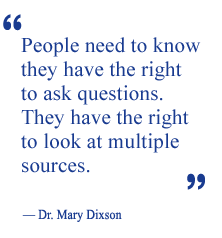Hubs Vs Anti Hubs - A Tutorial on Social Dynamics

What is the Anti- Hub Challenge all about? Is it….
Hubs for Money vs Hubs for Art?
To Challenge or not to Challenge?
Not even close! It’s actually a close up look at our society and its decision making process. A look behind the scenes of the mechanics of any movement for change.
Why It Happened
It all started when I recently got a new fan and like all good hubbers went to check them out to see what type of person likes my type of writing. I was sorely disappointed when I realized it was a spammer. The spelling – when there was any - was atrocious and the pics were obviously ripped from another site with no credit given. All in all, it was obvious that there was a definite problem as this would be fan had spent hours fanning everyone and anyone.
For the first time since I have joined this site – I flagged a hub. But it also got me to thinking. How many of us, in the course of our research and reading come across those hubs that seem to be of low quality or are obviously commercials disguised as topics?
The answer is that it depends on what you’re looking at. For some, it’s a once in a while occurrence, for other it happens quite a bit. But many, at one time or another, whether in comments, on the forums or even on their hubpages has commented about finding these types of hubs and their dismay and outrage ripples outward touching many who were otherwise unaware of it.
As I thought about it, I wondered why hasn’t anyone, on any side of the fence, asked what can we, as a entire community, do about this and go about it in a way that benefits everyone? After all, I’d seen on the forums where people have actually pulled out of Hubpages because of their perspective on unfair practices about being flagged for various reasons. I’d seen plenty of discussions in the forums on various perceived inequalities in the rating systems and the reactions of both profit-desiring and artistic-driven hubbers about other types of hubbers, their nationalities, the management staff, and on and on.
Yet, no one had really given any concrete way of solving the problem. There were excuses, accusations, innuendos and finger pointing galore. But no one said or wrote – here’s what EVERYONE can do about it. Here’s how we can unite as an internet community and uphold high standards that profit all of us.
So I took a quote from the Talmud “If not you, who? If not now, when?” and applied it.
I knew there had to be a way that ALL of the writers – no matter the type, nationality, expert or novice, could make a difference and do it in a matter that benefited everyone. Thus was born, The Anti- Hub Challenge.
I thought carefully about what should and shouldn’t happen. I looked at the FAQs. I looked at the create-a-hub page. I looked at the flagging page. The instructions were pretty clear for the most part. Then I wrote the Anti Hub Challenge around what I had seen and heard in various areas of the forums and my idea. I gave everyone a chance to take a little responsibility on themselves and to keep Hubpages the quality place to write that we all seem to like. I even gave everyone a little logo to play with if they wanted to proclaim how much they wanted to keep quality as their byword. Then, I published it and waited. And sure enough, it didn’t take long for society to show itself.
So what happened?
As Ecclesiastes 1:9 states in part ”..there is nothing new under the sun.” The reactions of hubbers on Hubpages to the Anti-hub Challenge are a microcosmic look into the reactions of our society as a whole.
Let’s look at from an objective perspective:
What if this were another issue entirely – a nationwide issue? Say the cost of healthcare, the issue of taxes, asking for fiscal accountability, government debt, elected officials ethics, or any of a myriad of other issues?
These are all issues that everyone has an opinion on, everyone wants something done about, yet whenever anyone says “here’s what we need to do for everyone” there’s an public and/or professional outcry about the method proposed. It's the type of outcry that we hear daily. We never really think about what it means underneath.
So I decided to use the Anti-Hub Challenge as an example and model to show anyone the mechanics behind a movement.
Let’s Start with Statistics
The hub itself has garnered 182 views and 29 comments. Of those 29 comments – 9 were mine – so 20 comments. That means 1 in 9 people who viewed this hub actually stopped to comment on it. Of those 20 comments, 17 were from other hubbers and 3 were from management people. That means 85% of my comments were from other hubbers who are people just like you and me.
As of 7/30/2009 the number of published hubs is 420, 753. The number of published users is 83, 697. Number of Staff is 7. People assigned to check hubs is 1. This means that one person is assigned to look at every new hub that is published to determine if it is spam or not. Depending on how much traffic there is in new hubs per day - that's an awful lot of time for one person to spend looking for problems. But, if hubbers took responsiblity and checked hubs as they came across them - It not only would save that one person time, but each hub would have a better chance of being scanned for potential problems.
Simple logic and simple math with a simple solution. Sounds like everyone should be happy with this type of solution - right?
What did the other Hubbers have to say?
The comments could be divided into general groups.
- Yes! Group – Hey! Great idea – thanks for giving me a way to make a difference.
- Yes, But… Group - Great idea – I like it – but I have a legitimate concern you should address.
- You Go! Group – Positive comments but no commitment
- Been There Done That – I already said something, but no one listened to me, so they’re not going to listen to you and why bother to keep trying it’ll never change.
- Don’t Rock My Boat - Hey! I got mine and doing fine – don’t do anything that will keep me from doing that!
- The Finger Pointers – Wait a minute! What about thus and so? Why should I have to do anything?
Starting to sound familiar? You can apply these groups to just about any issue of the day. Which ones are usually the loudest and most remembered? Why are they the loudest and most remembered?

Fear Sells
That’s right – fear sells. It’s much easier to sell fear than facts. It’s easier to attack what we fear than look it in the face, examine what it is and possibly learn something from it. What kind of fear sells?
Human beings are at a basic level pack animals. We all want consensus, we’re comfortable when everything is the same and when we know what to expect from others and our society.
Fear of change is the biggest seller. Whether that change is for good or ill – it’s fear that most politicians and people in general use to get us to make decisions. It’s not facts, figures or past historical knowledge. Don’t try to do X or Y will happen! Don’t vote for A because B will happen! You hear it every day. Don’t change this or some bad thing will happen – but I won’t tell you about the good benefits that will outweigh that and let you decide for yourself.
Fear of accountability is another factor. Remember 1 out of 9 people? Here’s the other eight. They’re afraid to say anything in case they come down on the wrong side of the fence. They don’t want to be accountable for making a choice right or wrong. Therefore, they are not heard. No matter that they constitute a majority of opinion, if they don’t speak, we can’t hear. Really, why do you think it is that politicians have spokespeople and carefully crafted press releases? So they can stay on the fence without falling off. They’re heard – but they really say nothing unless they have to.

Obfuscation
Incidentally, this is one of my favorite words. Obfuscation is “the concealing of intended meaning in communication, making communication intentionally ambiguous and more difficult to interpret.” It’s another tactic to sell you on something. It’s often used by politicians and people in general.
Why would people obfuscate? Because they know, in the end, that their position doesn’t have merit, there are no facts to refute the original argument or idea. They cannot back down from their position even in the face of proven facts. Happens all the time in the political world and in our society- The AIG bailout is a great example – we were all told – we have to do this – Now! - or the market will collapse (fear). The money will be used to prop up mortgage lenders; until we found out that it also paid bonuses (obfuscation). Happens here on hub pages as well. Wait a minute - people might actually flag suspect hubs!
The sin of omission such as AIG is not the only obfuscation there is. There is the personal misdirection and/or finger pointing as well. Attacks on a personal level to conceal the message of I can’t disagree with you. That’s why politicians delve into others’ personal lives – if you can’t beat them with facts – beat them with moral perceptions. It happens here in real life too. Some of the more negative comments questioned my amount of time here, my protected online life, and my earning capacity. None of which has any relevance to the topic of what each of us could do to keep a quality site a quality site. The other side of that coin is: Why? isn't that someone else's responsibility? - I don't have time to do this. It's nothing more than pointing the finger at something or someone else to draw your attention away from the real issue.
The last part of obfuscation is the “What you said is not what I heard” line. The media is great at this – play part of an interview to slant it toward negativity or positive depending on what will garner the most viewership. Politicians really can’t get away with it today because the media has learned this game all too well.
Miscommunications
But regular people still do it on a regular basis. Ever have anyone repeat back to you, something you said, in an out of context manner that makes it look like you agree or disagree with something? Remember your outrage or disgust? You forgot all about the issue because it became personal to you to clear your reputation rather than correct the misinformation and move on. That is obfuscation on an everyday level.
So to clear up miscommunication:
- Not against a Hub Challenge in any way, shape, manner or form.
- Never said Hubpages was spammy – said I want to help keep if from getting that way.
- Never said anyone shouldn’t make money- I said everyone would benefit from a quality site.
- Not against management in any way – in fact, I showed why management could use our support.
- Never wanted to censor anyone based on discriminatory reasons – that’s why Rule #1 is in bold and is Rule #1
Now About Management….
Remember there were three comments from Management? I am happy to report that no one threatened to ban me, shut me up or take down my hubs. In fact, the opposite occurred. They were extremely helpful and informative and in fact, gave me very useful content that I added to the original hub.
Someone commented in a forum that I perceived that the management comments were positive when in fact they were not.
“Spam detracts from the value of our company, and we remove as much of it as our resources permit. If you want to aid us with that, then we definitely welcome the help!”
“I would certainly be glad of more community involvement in flagging hubs that violate our rules, to bring them to my attention more quickly.”
“Of course, there will be some bad eggs, and that's why I appreciate community flagging any overly promotional or substandard hubs that flare up with the increase in hub production.”
Yup, really negative isn’t it? Of course, I expect you to go back and read the entire comments made to make sure I’m not obfuscating!
So what did you learn?
Now that you know the mechanics behind any movement and the types of groups that are in them – go back and read the hub and comments again. It might just surprise you what you see now.
Then, the next time you listen to the spin doctors, media moguls or your local politician – you’ll have a better understanding of the mechanics behind it all and reactions of everyone around you. You’ll be better informed and can make better decisions.










